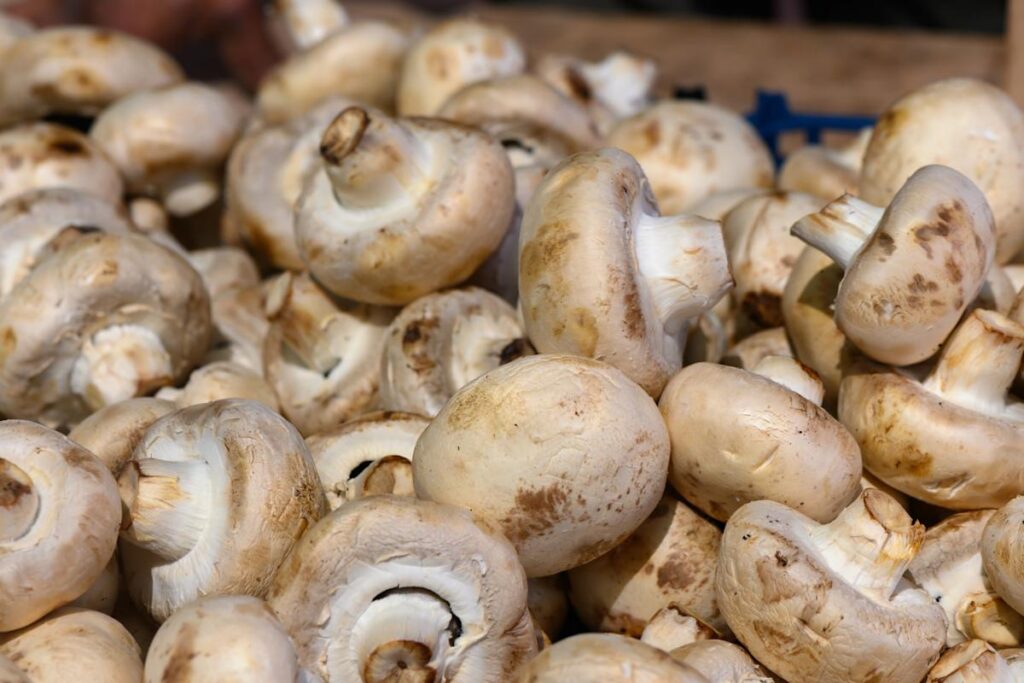
BEIJING – Scientists in China have made a groundbreaking discovery in farm composting that could significantly boost crop performance.
Breaking: Composting Innovation Unveiled
A team from the Kunming Institute of Botany at the Chinese Academy of Sciences has introduced a novel method of composting using a specific species of mushroom. This breakthrough promises to tackle the persistent challenges of waste management in agriculture while enhancing plant growth.
Immediate Impact
The study, published in the journal Environmental Science & Technology, reveals that the introduction of mushrooms to the composting process not only suppresses pathogens but also reduces antibiotic-resistant genes in the soil. This innovative approach shows significant growth improvements in crops such as oats.
“The results show significant growth of oats stimulated by biofertiliser use,” the researchers noted in their study.
Key Details Emerge
Traditional composting methods have struggled to effectively break down crop straw and livestock waste, partly due to the presence of antibiotic-resistant genes. The new method using mushrooms offers a promising alternative by reducing these genes and other organic pollutants.
Composting is essential for recycling organic matter into valuable fertilizer, enriching soil and plants. However, the presence of antibiotics in livestock can lead to resistant pathogens infiltrating soil systems, posing a significant challenge to sustainable agriculture.
Industry Response
The agricultural sector is closely monitoring these developments. Experts believe that integrating this method could revolutionize waste management in farming, offering a dual benefit of enhanced crop yields and reduced environmental impact.
The industry produces 14 billion tons of crop straw and 125 million tons of livestock manure annually.
By the Numbers
- 14 billion tons of crop straw produced yearly
- 125 million tons of livestock manure generated annually
- Significant reduction in antibiotic-resistant genes with mushroom composting
What Comes Next
This development builds on recent advances in sustainable agriculture. Researchers have also discovered that planting cover crops can reduce soil degradation, and combining solar panels with agriculture can increase crop yields while producing energy.
The timing is particularly significant as the world grapples with the environmental impact of agricultural waste, which contributes to air and water pollution and climate change.
Background Context
Agriculture is a cornerstone of global food supply and economy, yet it generates substantial waste. Composting is a traditional method to recycle organic matter, but its effectiveness is often limited by modern agricultural practices.
Meanwhile, industry experts warn that antibiotic use in livestock could exacerbate the spread of resistant pathogens, making innovative solutions like mushroom composting crucial.
Expert Analysis
According to Dr. Li Wei, an agricultural scientist, “This discovery could transform how we manage agricultural waste, providing a sustainable solution that enhances food security while protecting the environment.”
The move represents a significant shift from conventional methods, offering hope for a more sustainable future in agriculture.
Regional Implications
The announcement comes as China seeks to address environmental challenges associated with its vast agricultural sector. The successful implementation of this method could set a precedent for other countries facing similar issues.
According to sources familiar with the study, the Chinese government is considering pilot programs to test the scalability of mushroom composting across different regions.
Timeline of Events
- 2023: Study published in Environmental Science & Technology
- 2022: Initial experiments conducted at the Kunming Institute of Botany
- 2021: Research team identifies mushroom species for composting
Future Implications
This breakthrough in composting signals a new era for sustainable agriculture. As research continues, the potential for wider adoption of this method could lead to significant reductions in agricultural waste and improvements in crop yields worldwide.
Join our free newsletter for weekly updates on the latest innovations improving our lives and shaping our future.






